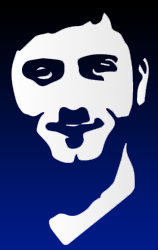We start 2011 by talking about the email management process. Being it a highly subjective matter I will share with you some ideas I have matured during the last few months, on how we can use our inbox productively.
The starting point
Email management starts with action (so, it requires time and effort). In experience resides the ability of creating a better real or virtual environment. This also mean experiencing with new ways of consuming information. We are usually unaware of the fact that in varying the way we consume information, we change the way we perceive the information itself. For example, if we read a real paper newspaper or check the news digitally on our wifi tablet device, we perceive a difference in the way we consume (eat) the information.
How do you know when you found the method you prefer?
Try as many methods as you can (inbox reading, RSS reader, tablet, paper newspaper, surfing the web and entering a specific site, forums, etc. When you find satisfaction in a method of consuming information, then stick with it or them!
Email management is an art. It becomes productive when you clarify your top needs and personalize your digital workspace (that is your desktop or web browser) accordingly to them. The idea behind email management is to simplify your life and to stay away from digital clutter, and in order to do this there are little adjustments to do in our daily email checking routine. (This is my personal experience, maturated during the last 4 months). First of all, aim for a clear inbox at the end of every single day. Make sure you leave your computer with a zero-inbox mail. This is a way to make sure you get your things done before leaving.
-
For spam, you know what to do
-
For advertising, read if you’re interested and/or trash immediately (in case, unsubscribe immediately!);
-
For messages from your friends / colleagues, trash immediately if it is not important;
-
For messages of registration, subscription confirmation and other important stuff just keep everything, in case move in a folder where you keep all of your important stuff on the email program.
-
For RSS feeds, read and trash. If you really love what you’re reading though, just move the message on a different folder you will create just to keep your important conversations and emails.
keep your communication as simple as possible
Why use 20 words when you can just use 5? Moreover, we don’t need ads to destroy our productivity and lowering our focus on what we’re doing. That is why I always remember to install a plugin to remove ads from my gmail, just like Adblock.
Set limits to your connections.
I love to surf the net, but it is incredible to look at your watch and discover you lost so much time surfing left and right with no purpose at all. By setting limits to the time you spend online you can manage your time in a better way. Why spend your time in front of a monitor when you can spend it with your loved ones, doing those activities you enjoy doing the most?
Establish a routine
in your daily navigation. I usually check my inbox once or twice a day. Try setting yourself limits in the number of times you check your inbox. As you can see, email management is not rocket-science. The point is, we constantly need boundaries to divide us from the technology we use. These tips have made me realize that there is no point in wasting time in front of an email box. Normally, I just take 5 to 10 minutes to check, respond and keep my inbox clear.
Growing a sense of freedom in technology enriches your life in the real world
